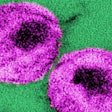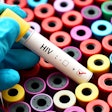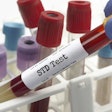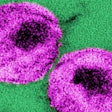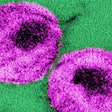
A clinical trial for a preventive HIV vaccine has begun enrollment in both the U.S. and South Africa.
The phase I trial will evaluate the vaccine candidate known as VIR-1388 for safety and efficacy in inducing an HIV-specific immune response in participants. The trial, HVTN 142, is sponsored by Vir Biotechnology. It is being conducted through the HIV Vaccine Trials Network (HVTN), which is funded by the National Institute of Allergy and Infectious Diseases (NIAID) of the U.S. National Institutes of Health.
VIR-1388 has been designed to instruct the immune system to produce T cells that can recognize HIV and signal an immune response to prevent the virus from establishing a chronic infection. The trial will be conducted at six sites in the U.S. and four sites in South Africa. It will enroll 95 HIV-negative participants, ages 18 to 55 years, in overall good health. Participants will be randomly enrolled in one of four study arms: three arms will each receive a different dose of the vaccine; one will receive a placebo.
To optimize participant safety, the trial will only enroll people who are seropositive and asymptomatic for cytomegalovirus (CMV), as VIR-1388 uses a CMV vector -- that is, a weakened version of CMV to deliver the HIV vaccine material to the immune system. CMV infection is globally common and predominantly asymptomatic; most people who are CMV-seropositive are unaware they are infected with CMV. Furthermore, CMV remains detectable in the body indefinitely; this trait suggests that it may have the potential to deliver and then safely assist the body to retain HIV vaccine material, potentially overcoming the waning immunity observed with previous shorter-lived vaccine candidates.
NIAID has funded the discovery and development of the CMV vaccine vector since 2004; NIAID is funding this trial along with Vir and the Bill & Melinda Gates Foundation. Initial results from the study are expected in late 2024; an optional long-term sub-study will continue to follow volunteers for up to three years.








